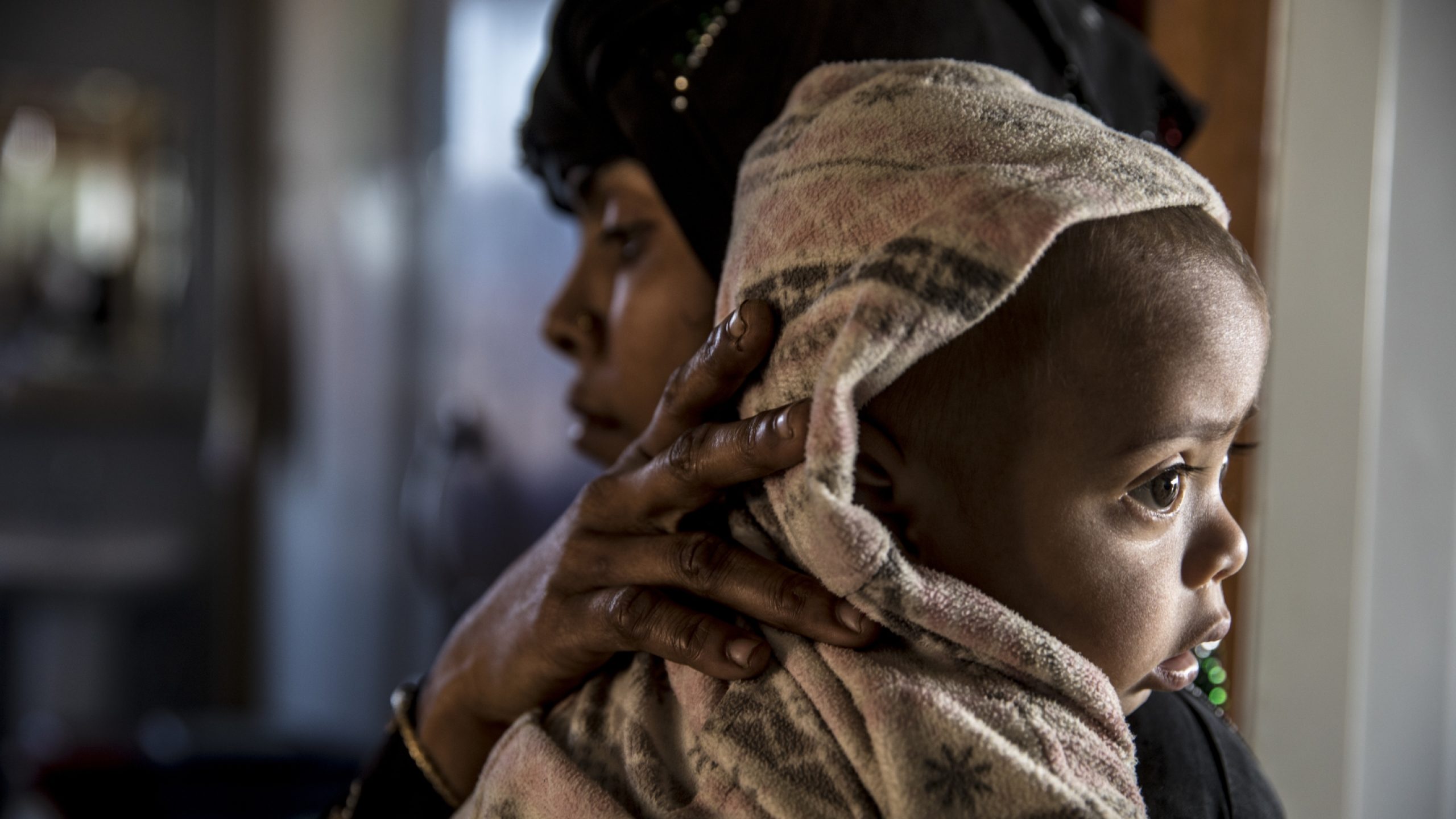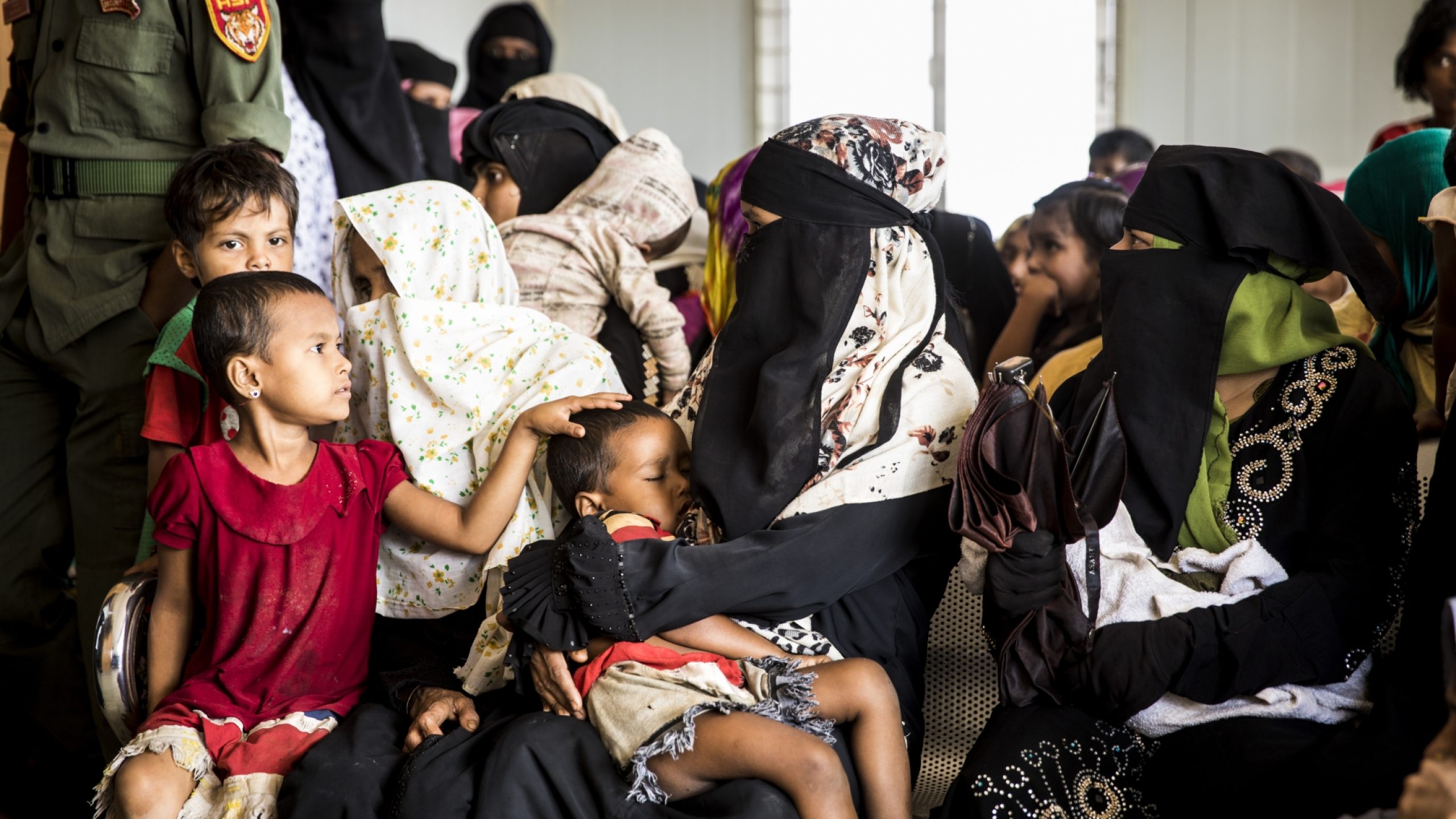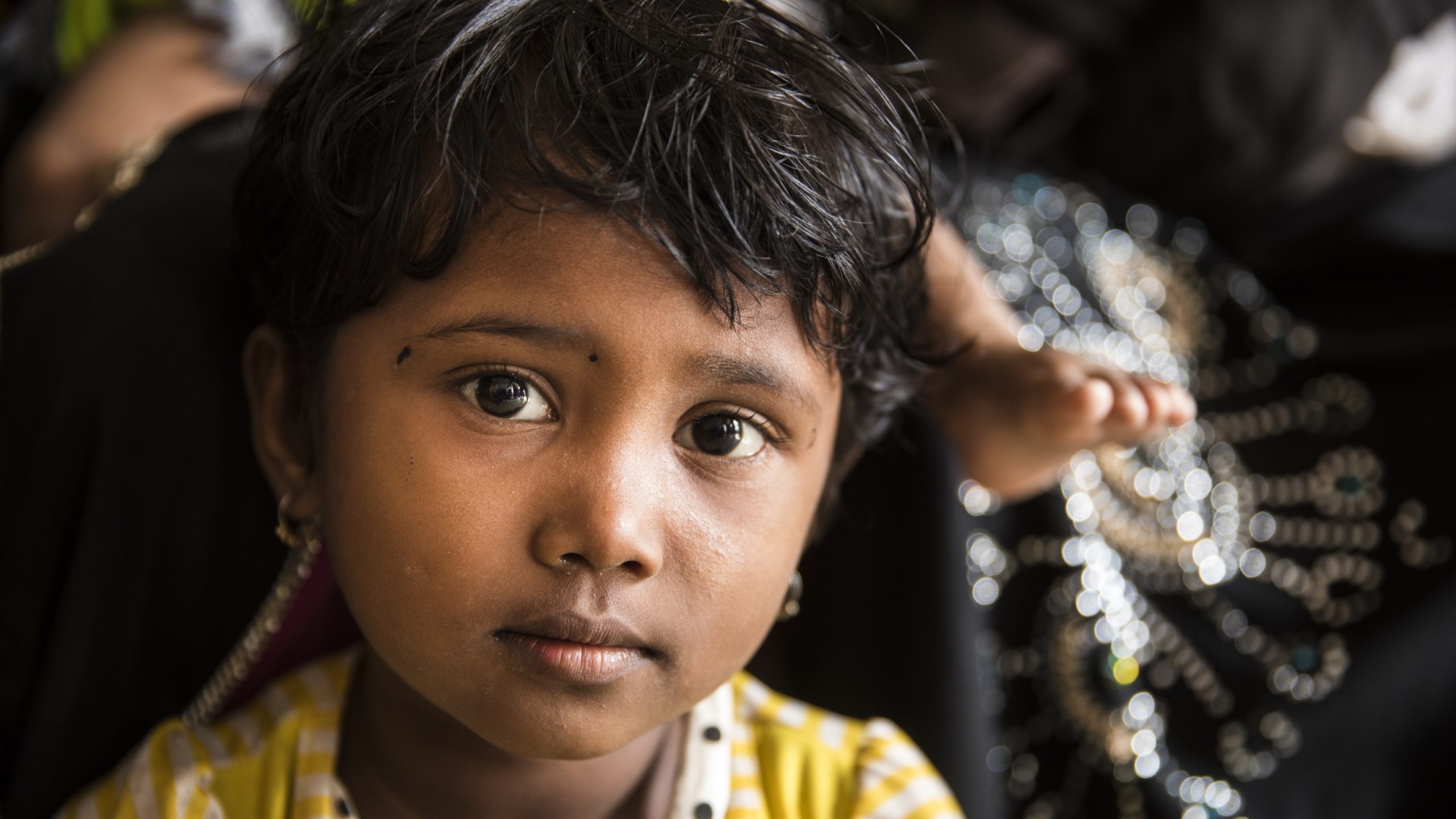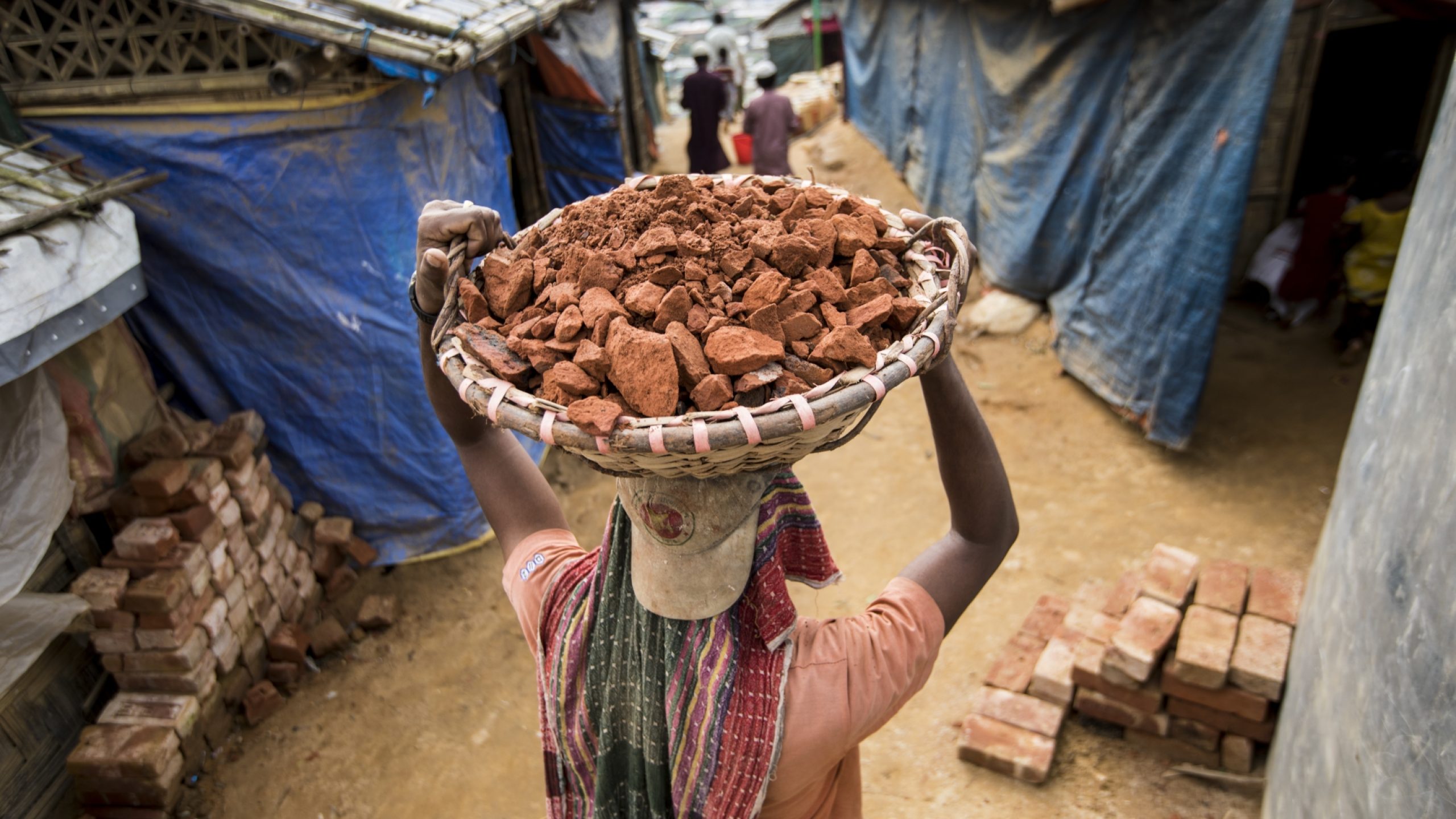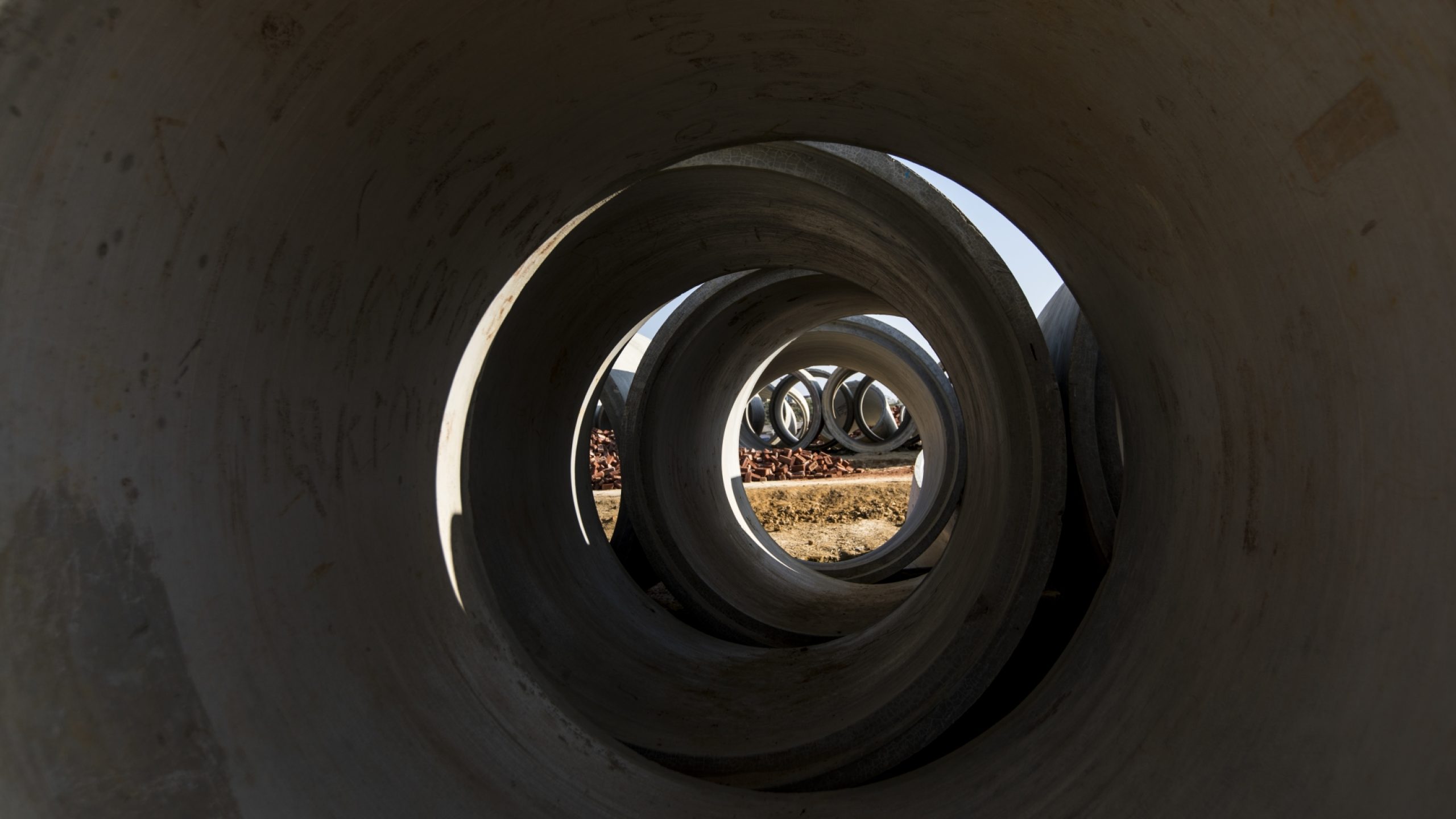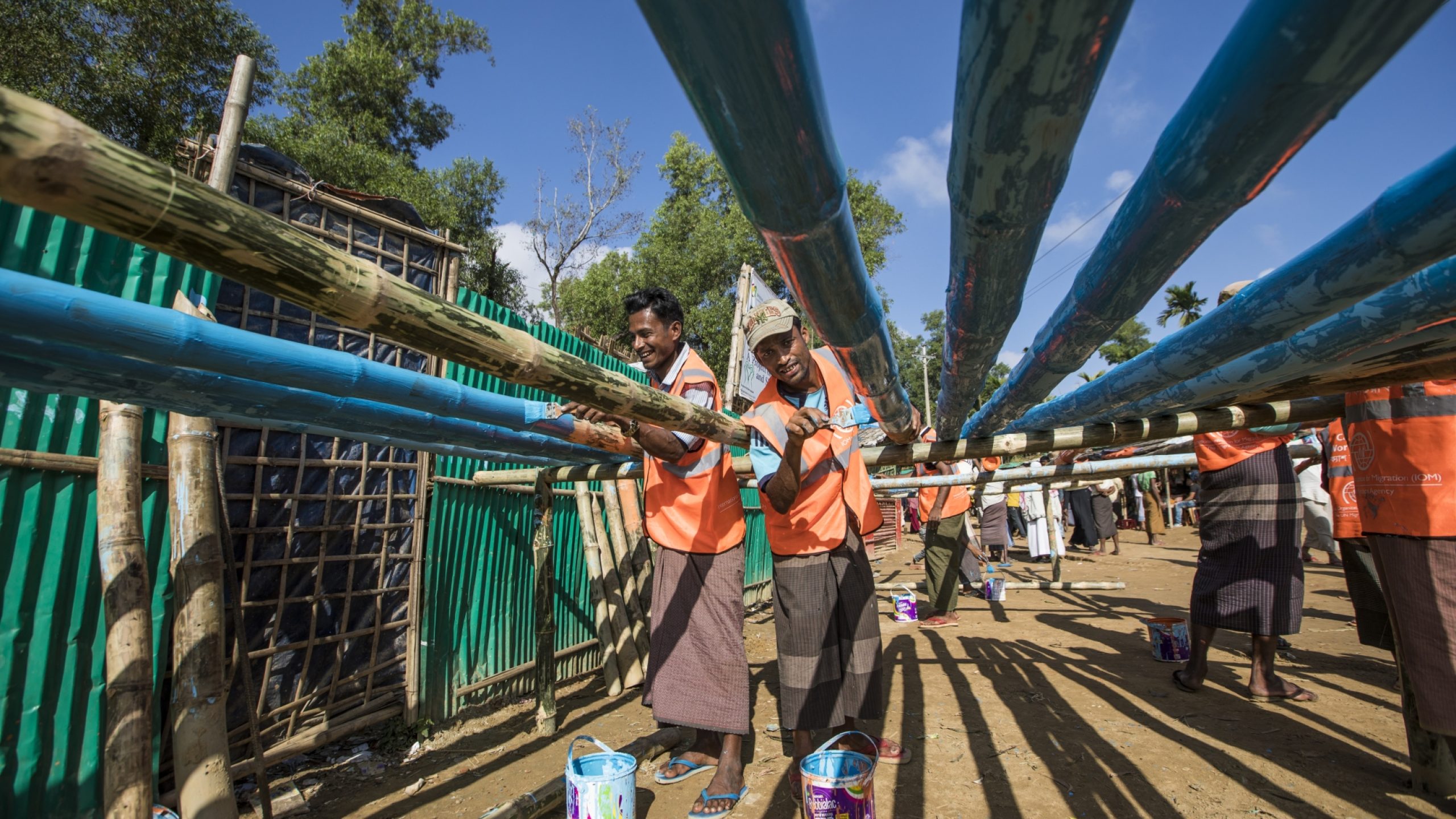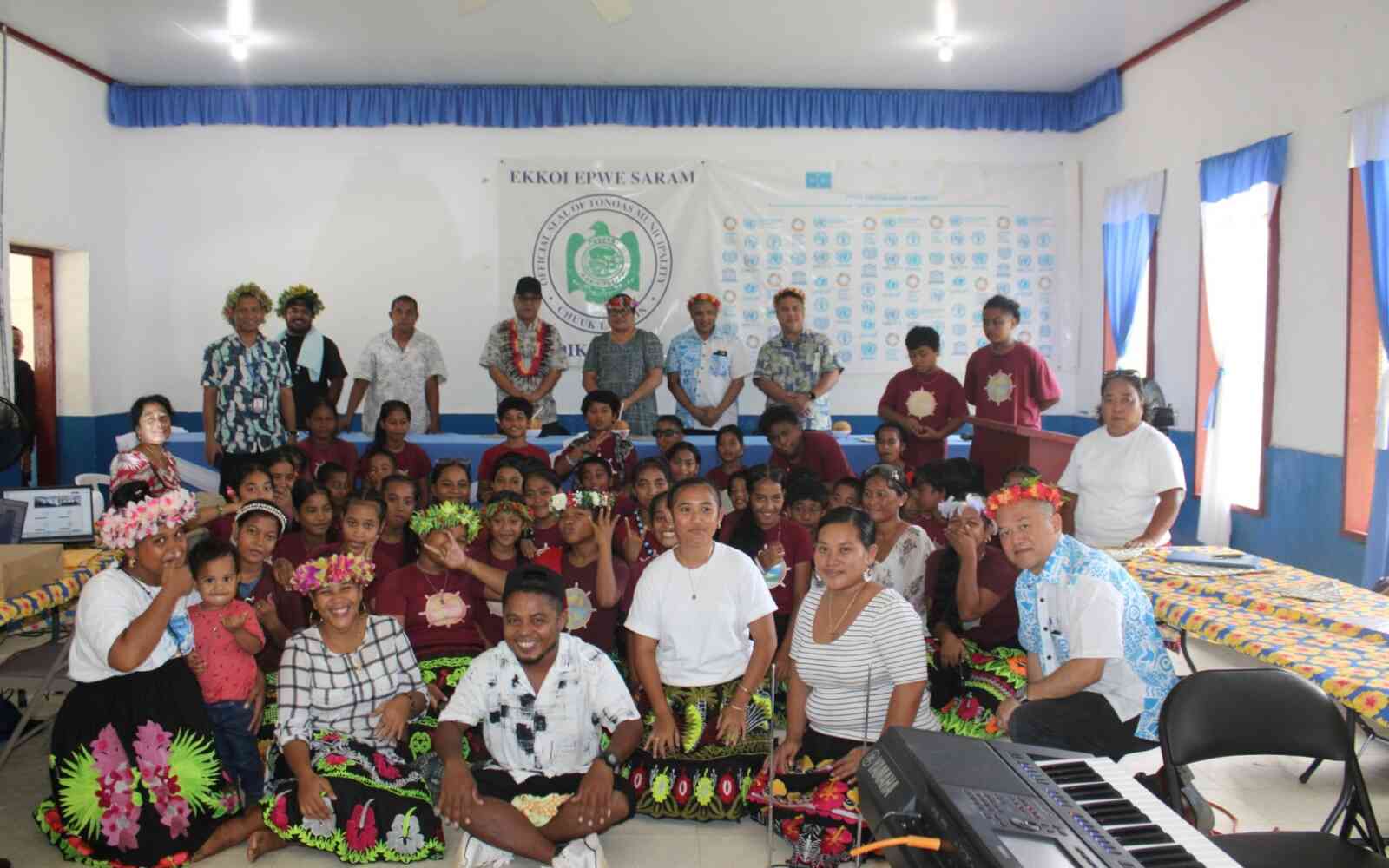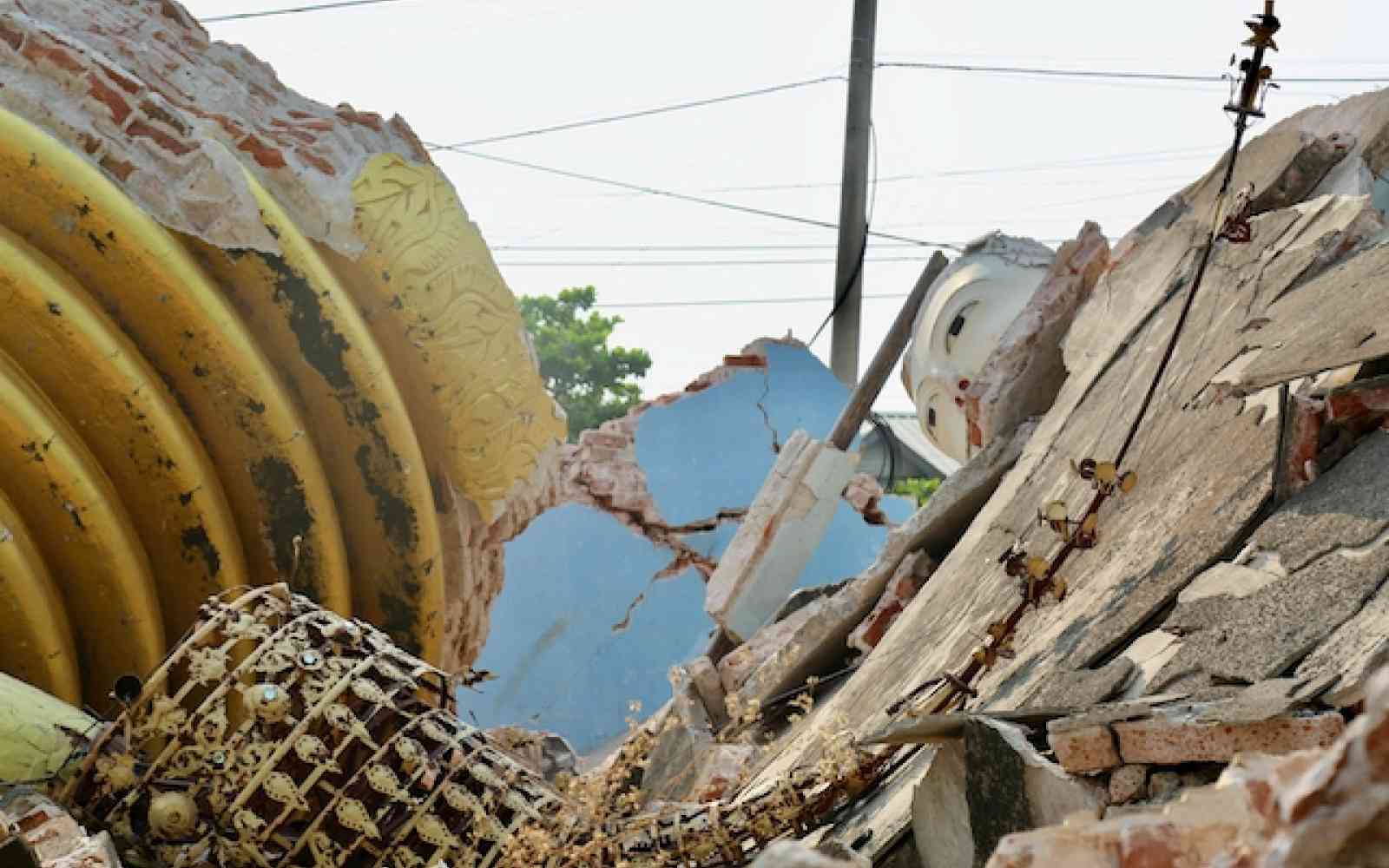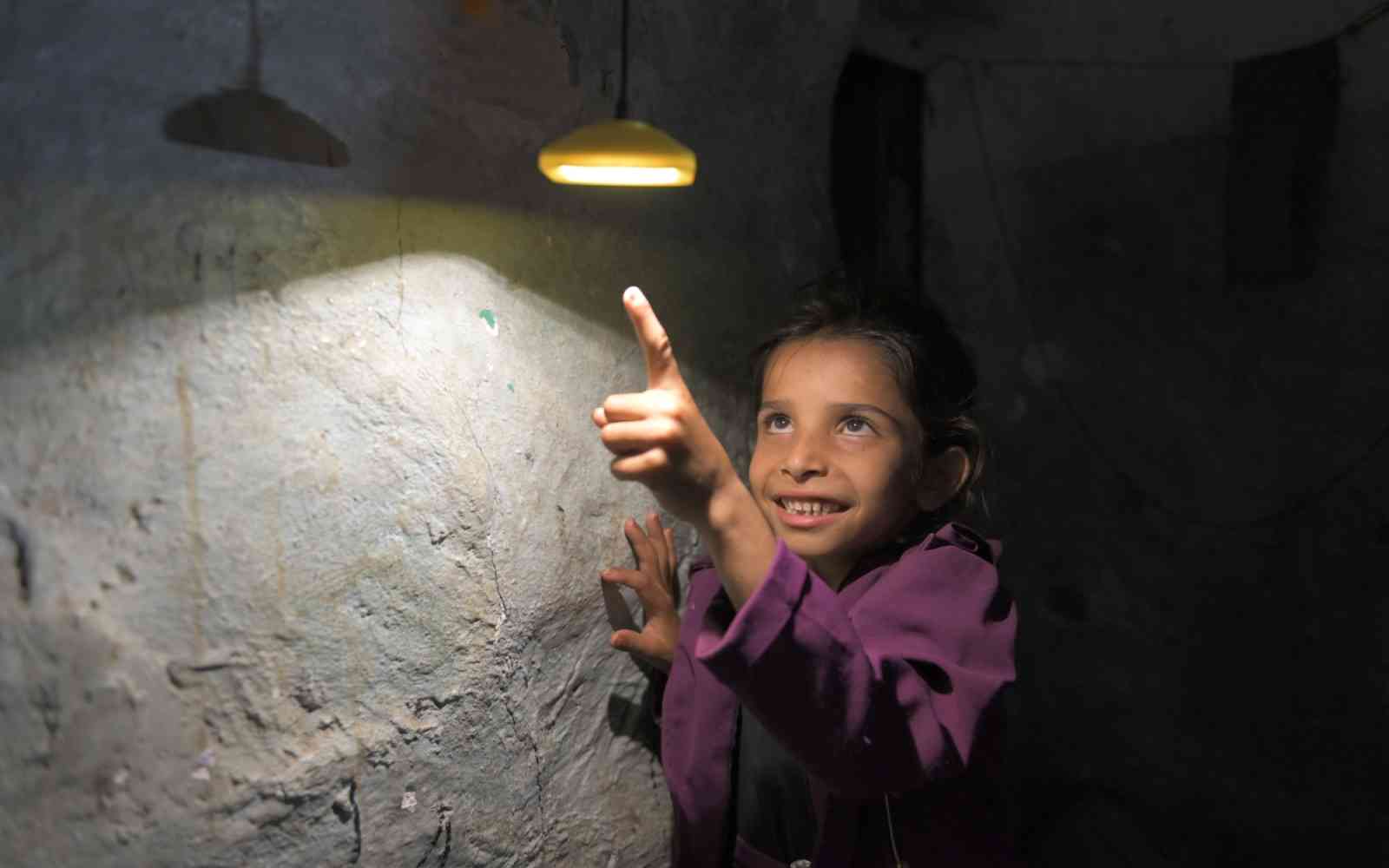The United Nations Office for Project Services (UNOPS)

Improving conditions in Cox’s Bazar
Thousands of Rohingya refugees continue to need life-saving assistance. Here’s how organizations are working together in Bangladesh to provide it.
Cox’s Bazar in southern Bangladesh hosts one of the densest concentrations of refugees in the world. More than 900,000* Rohingya refugees – most of whom fled to the country after violent conflicts in Myanmar in August 2017 – live in camps measuring a total of 24 square kilometres.
Most of the refugees left their homes with few, if any, possessions. And most need a range of critical services, including shelter, food and water, education, healthcare and basic sanitation facilities.
Here’s what’s being done to help improve conditions in Cox’s Bazar, as residents wait to return safely home.
Access to food
Rohingya refugees receive life-saving food assistance, including in-kind food distributions of rice, pulses and fortified oil, as well as hot food prepared and distributed by volunteers. Although acute malnutrition for children under the age of five has decreased in Cox’s Bazar, malnutrition is still a concern.
- Published on 1 August 2019
- COVID-19 | April 2020: With additional funding from the United Kingdom's Department for International Development, implementing partners in Cox's Bazar are procuring medical supplies and equipment needed for COVID-19 testing, and establishing temporary treatment and isolation centres.

Access to education
Around 55 per cent of the refugees in Cox’s Bazar are children – all in need of not only educational support, but also a place to just be kids. Schools give children the opportunity to learn while child-friendly centres allow them to play.




Access to health
After surviving violent conflict in Myanmar, many Rohingya refugees are left traumatized. Health services provided in the camps help them deal with the psychological aftermath of their experiences. Health clinics also help treat the sick and injured, as well as provide basic health needs for mothers-to-be and children.
Access to sanitation
With such a large number of people living in densely populated areas, sanitation and waste management are vital to prevent water-borne diseases like cholera. But limited space makes building waste processing facilities a challenge. A pilot programme in Cox’s Bazar experiments with collecting, drying and then burning human waste.


Access to jobs
When they flee to safety, refugees leave behind the jobs and businesses they depend on for their livelihoods. Cash-for-work programmes help provide income-generating activities – income that can be used to help buy necessities for families.
Project details
The United Kingdom's Department for International Development has provided more than £80 million in humanitarian assistance to help Bangladesh’s response to the Rohingya refugee crisis, under their £111 million ‘Strengthening Humanitarian Preparedness and Response’ programme.
As the fund manager for this programme, UNOPS is working closely with 15 implementing partners – including non-governmental organizations and United Nations organizations – that are improving conditions for Rohingya refugees residing in camps in Cox’s Bazar, as well as in host communities.
These partners are providing a range of critical assistance including cash-for-work opportunities, shelter, food and water, education, health and nutrition, protection, sanitation and hygiene services.
UNOPS contracts implementing partners, oversees the quality assurance of the broader programme and provides budgetary, financial monitoring and programmatic monitoring, and evaluation services.
*As of 30 June 2019









